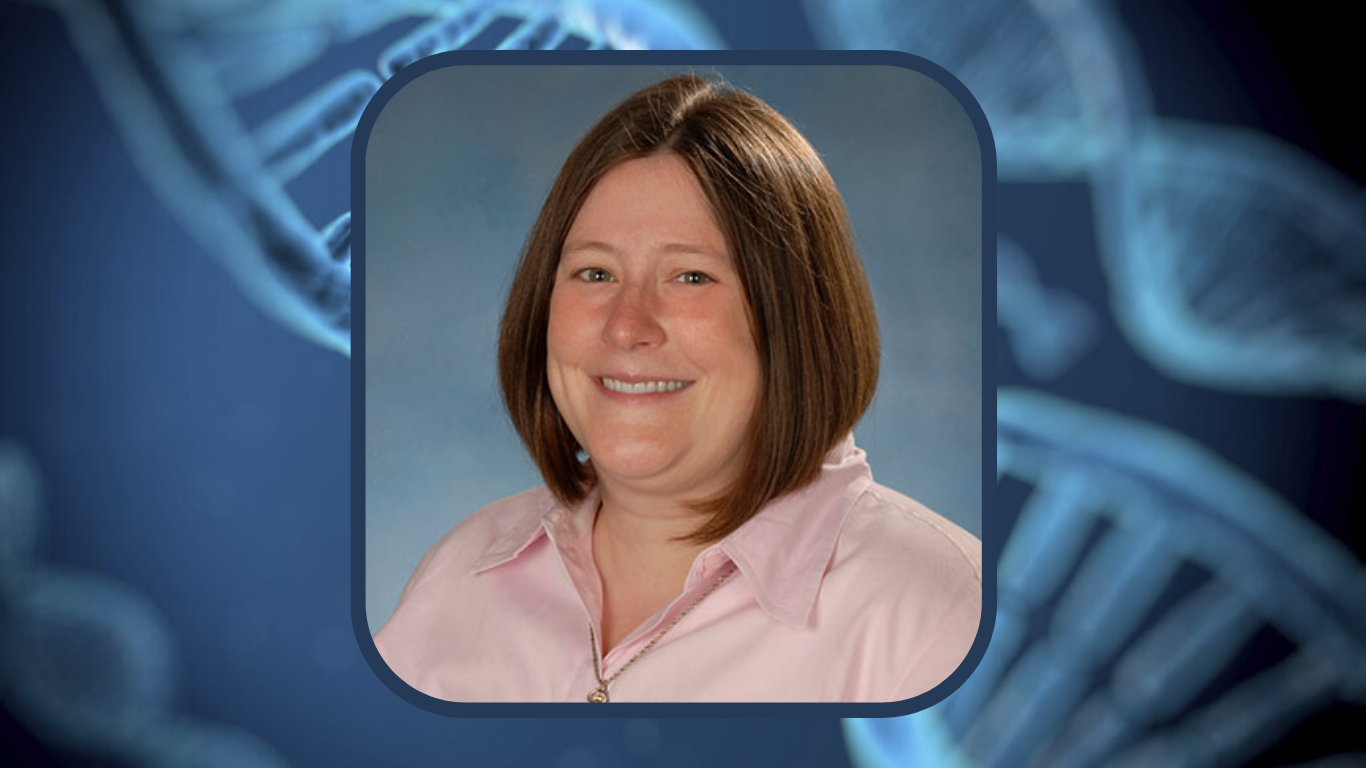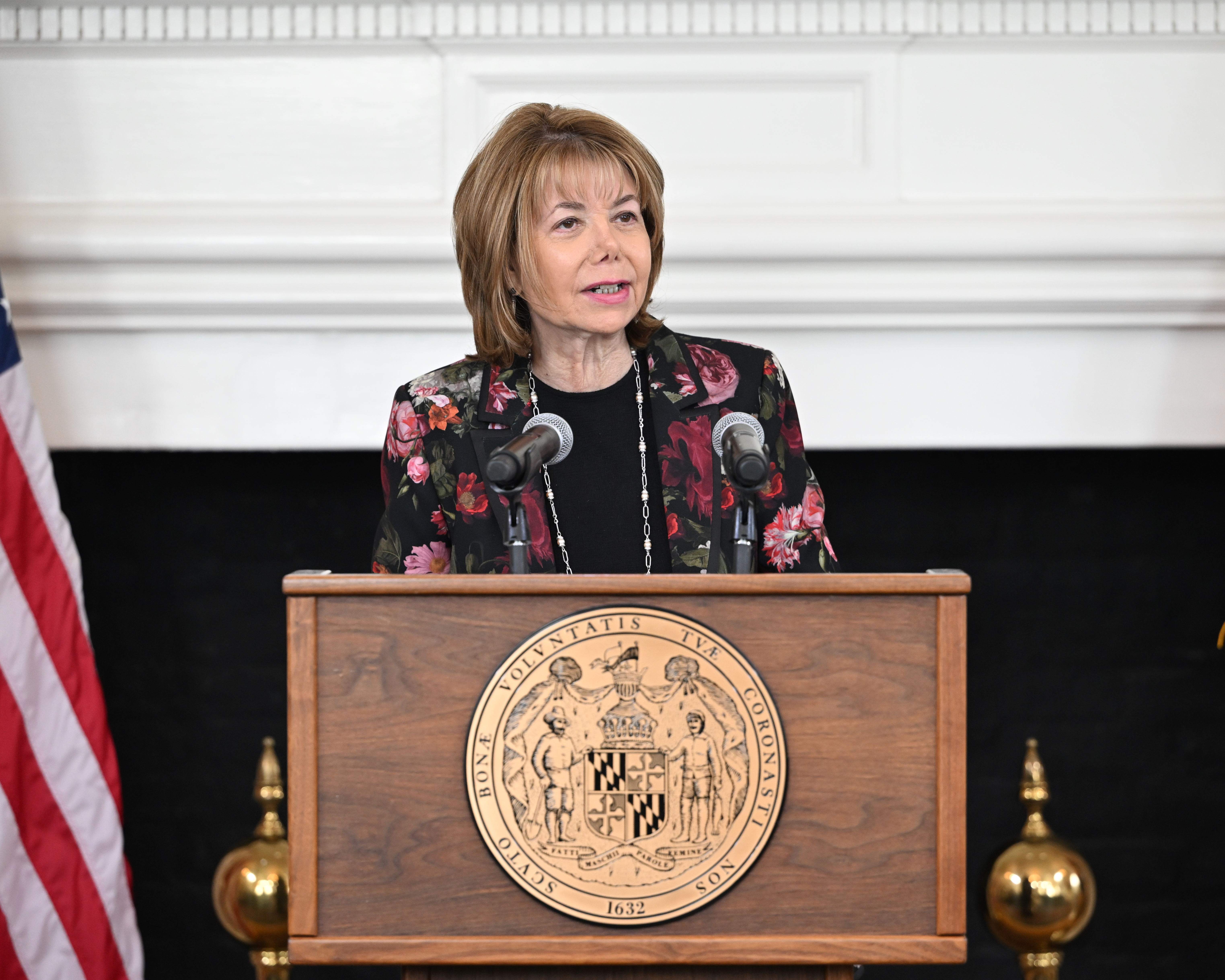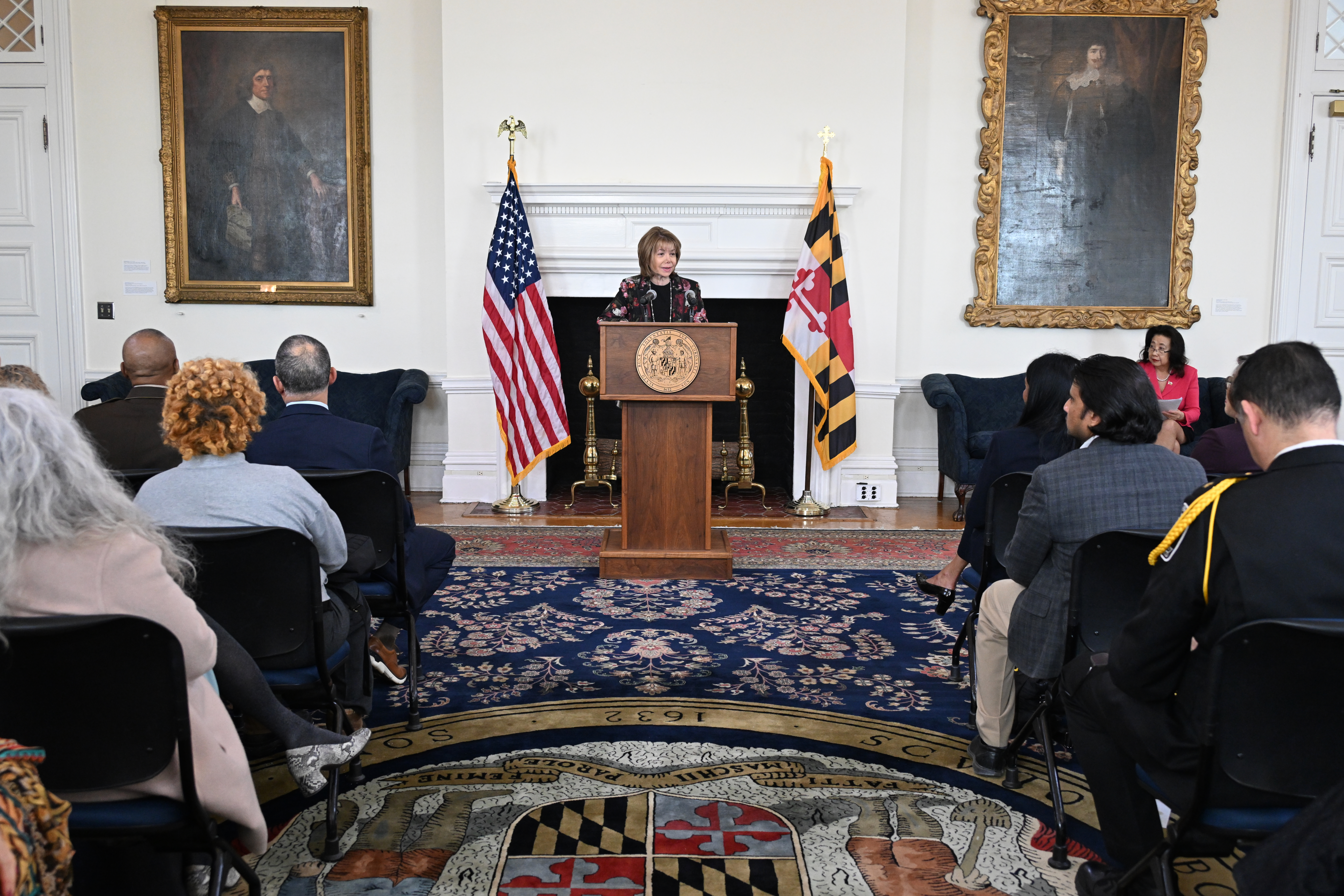Julie Dunning Hotopp Recognized for MPower Professorship

Published in Institute for Genome Sciences Insider Fall 2025 Issue, Adapted for the MPower website | October 30, 2025
Several years ago, Julie Dunning Hotopp, PhD, got feedback on a grant submission strongly suggesting she find an expert in the biology of sex of nematodes before resubmitting. She found the perfect collaborator in Eric Haag, PhD, at the University of Maryland, College Park (UMCP). That collaboration has now led her to receive an MPower Professorship.
MPower Professors must show collaboration on strategic research that would be difficult to achieve on either the University of Maryland, Baltimore (UMB) or UMCP campuses without a partnership with someone from the other campus. They also must embrace MPower’s mission to collectively strengthen and serve the state of Maryland and its citizens. Each professor receives $150,000 over three years to support their salaries or research activities.
Dr. Dunning Hotopp, a scientist at the Institute for Genome Sciences (IGS) and Professor of Microbiology and Immunology at the University of Maryland School of Medicine, and Dr. Haag, a Professor in the Department of Biology and the Director of the Biological Sciences Graduate Program, collaborated on a project to better understand the processes that lead to the formation of new Y chromosomes in filarial nematodes and how the genes on that chromosome become properly regulated. Dr. Dunning Hotopp had already been part of a team that discovered two new Y chromosomes on filarial nematodes that cause tropical diseases, such as river blindness, and kill or disable millions of people globally.
Drs. Dunning Hotopp and Haag now co-mentor a student who uses resources on both campuses, including the computational infrastructure at IGS to work on this research project.
“We have really had a lot of synergy in this work and are looking forward to expanding it even further,” Dr. Dunning Hotopp says. “I’ve had other collaborations with UMCP professors which have also been great examples of team science.”
One of those other collaborations was with Iqbal Hamza, PhD, who had technology at UMCP that she needed for an experiment. She used his biolistics machine—commonly called a ‘gene gun’—that is used to introduce DNA or other genetic material into cells. Dr. Hamza is now in the same building at UMB as Dr. Dunning Hotopp and is an affiliate faculty member at IGS.
Dr. Dunning Hotopp also is the leader of IGS’s first T32 training grant of $1.9 million called “Systems-Level Research in Microbial Pathogenesis.” Students learn how a “systems-level” approach applies to both the type of research the trainees will undertake and the style of education they will receive. Systems level means that it’s necessary to understand how the parts of a whole interact, interconnect, interrelate, and often influence each other.
“In many ways the T32 and MPower Professorship align perfectly in that both involve collaboration on basic science, both teaching it and doing it,” Dr. Dunning Hotopp says. “I am very grateful for both opportunities.”



